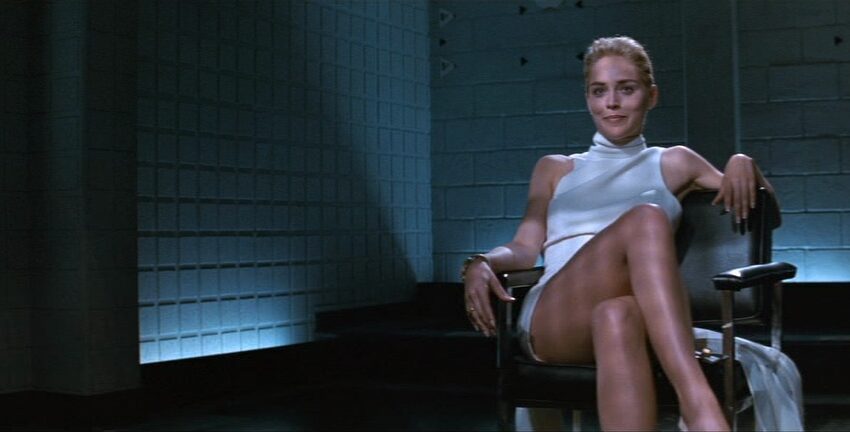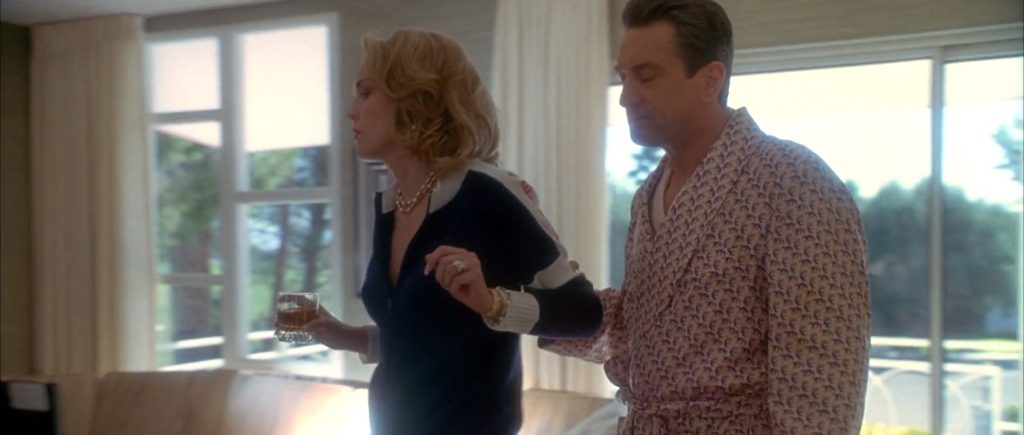
“Basic Instinct” (1991) – Film Review

“Basic Instinct” (1991), directed by Paul Verhoeven and written by Joe Eszterhas, is a film that unabashedly dives into the murky waters of erotic thriller territory, emerging as a movie that is as much known for its controversy as for its cinematic merits. Starring Michael Douglas as detective Nick Curran and Sharon Stone as the enigmatic Catherine Tramell, “Basic Instinct” blends sex, murder, and mystery into a cocktail that’s potent, if not particularly palatable.
Narrative and Themes: A Dance of Seduction and Suspicion
The plot of “Basic Instinct” follows detective Curran as he investigates a brutal murder that leads him to Catherine Tramell, a wealthy and manipulative novelist. The film is a cat-and-mouse game filled with sexual tension, psychological manipulation, and a series of twists that are both titillating and confounding. On the surface, it’s a thriller about catching a killer, but underneath it’s a lurid exploration of power, control, and sexual politics.
The themes of “Basic Instinct” are as subtle as a sledgehammer, with the film reveling in its portrayal of sex and violence. It plays with the idea of the femme fatale, using Catherine Tramell as a character who embodies both the allure and the danger of female sexuality.
Behind the Scenes: Controversy and Creative Clashes
The making of “Basic Instinct” was fraught with controversy and conflict. Sharon Stone’s infamous interrogation scene, in which she uncrosses her legs to reveal she’s not wearing underwear, became a point of contention. Stone later claimed she was misled about how explicit the shot would be, highlighting issues of consent and exploitation in Hollywood.
The film’s production was also marked by tension between Verhoeven and Eszterhas, with disagreements over the script and the film’s direction. These behind-the-scenes clashes contributed to a sense that “Basic Instinct” was as tumultuous to make as it is to watch.
Performances: Charisma and Chemistry in a Game of Deception
Michael Douglas, as Nick Curran, delivers a performance that is both intense and often unsettling. He portrays Curran as a man teetering on the edge, caught between his duty as a detective and his infatuation with Catherine. Sharon Stone’s performance is perhaps the most memorable aspect of the film. She imbues Catherine with a mix of icy control and seductive charm, making her a magnetic yet menacing presence.
Cinematography and Score: Crafting a Mood of Menace and Allure
Director of photography Jan de Bont and composer Jerry Goldsmith work together to create a film that is slick and stylish. The cinematography uses a palette of cool blues and harsh whites, creating a visual style that’s as crisp and cutting as the dialogue. Goldsmith’s score, with its seductive and suspenseful undertones, complements the film’s mood perfectly.
Cultural Impact: A Legacy of Notoriety
“Basic Instinct” made a significant impact upon its release, not just for its explicit content but for how it pushed the boundaries of mainstream cinema’s portrayal of sex and violence. The film’s legacy is one of notoriety; it’s as much remembered for its controversial scenes and the discussions they sparked as it is for its story or cinematic style.
Final Thoughts
In essence, “Basic Instinct” is a film that thrives on shock value, delivering a story that’s wrapped in a glossy veneer of eroticism and thrill. While it attempts to weave a complex narrative of murder and mystery, it often gets lost in its own attempts to titillate the audience. The film is a product of its time, a reflection of the early ‘90s fascination with lurid thrillers, and a reminder of the fine line between sensationalism and storytelling.




